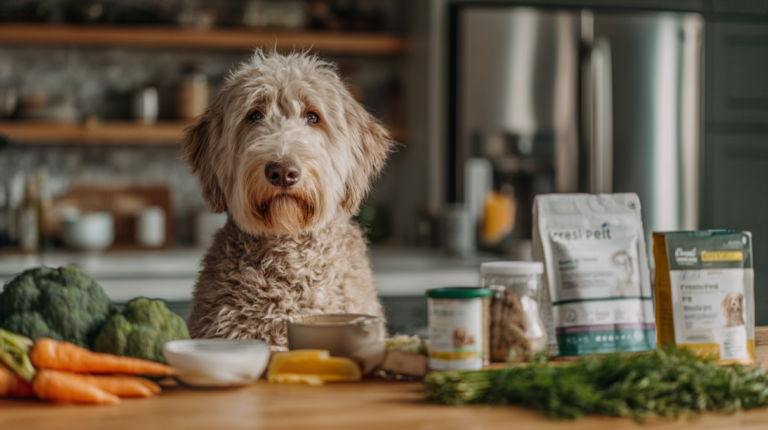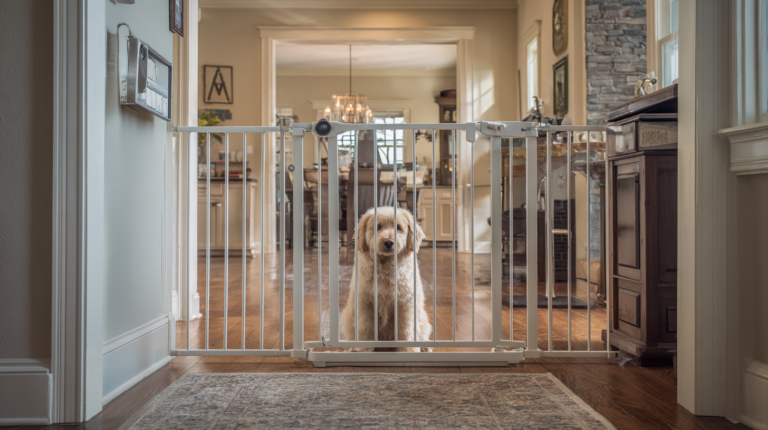Can dogs eat egg shells safely? Discover 4 alarming risks, expert safety tips, and when to call your vet. Essential guide for responsible pet owners.
Table of Contents
Picture this: You’re preparing breakfast when your furry friend suddenly appears at your feet, tail wagging, eyes fixed on the cracked egg shells in your hand. As a loving pet owner, you might wonder, “Can dogs eat egg shells?” You’re not alone in this concern. According to recent veterinary surveys, over 68% of pet owners have questioned whether common kitchen scraps are safe for their dogs.
Can dogs eat egg shells? The short answer is complex and requires careful consideration. While egg shells aren’t immediately toxic to dogs, they pose several significant risks that every responsible pet owner should understand. From potential choking hazards to digestive complications, feeding egg shells to your canine companion requires extreme caution and proper preparation.
In this comprehensive guide, we’ll explore the four most alarming risks associated with dogs consuming egg shells, provide expert safety guidelines, and help you make informed decisions about your pet’s nutrition. Whether you’re a new pet owner or an experienced dog parent, understanding these risks could prevent a potential emergency veterinary visit.
The Truth About Dogs and Egg Shells: What Every Pet Owner Should Know

Understanding the Canine Digestive System
Before diving into whether dogs can eat egg shells, it’s crucial to understand how your dog’s digestive system works. Unlike humans, dogs have a shorter digestive tract and stronger stomach acid, which allows them to process certain foods more efficiently. However, this doesn’t mean they can safely consume everything we can.
The canine digestive system is designed primarily for protein-rich diets, with some capacity for carbohydrates and fats. When it comes to calcium-rich materials like egg shells, dogs can theoretically break them down, but the process isn’t without risks.
The Calcium Connection: Why Some People Consider Egg Shells
Many pet owners consider feeding egg shells to dogs because of their high calcium content. One large egg shell contains approximately 2,000 mg of calcium carbonate, which is indeed beneficial for bone health. Some holistic pet care enthusiasts argue that ground egg shells can serve as a natural calcium supplement.
However, before you start saving your breakfast scraps, it’s essential to understand that there are safer, more effective ways to ensure your dog receives adequate calcium. Commercial dog foods are formulated to meet all nutritional requirements, including calcium, making supplementation unnecessary for most healthy dogs.
4 Alarming Risks When Dogs Eat Egg Shells
Risk #1: Choking Hazards and Airway Obstruction
The most immediate danger of feeding egg shells to dogs is the risk of choking. Unlike processed dog treats designed for safe consumption, egg shell fragments can be sharp and irregular in shape. When dogs attempt to swallow these pieces, they can become lodged in the throat, causing:
- Immediate choking: Large pieces can block the airway completely
- Partial obstruction: Smaller fragments may cause difficulty breathing
- Panic response: Dogs may paw at their mouth or show signs of distress
Case Study: Dr. Sarah Mitchell, a veterinary emergency specialist in Colorado, reports treating a 3-year-old Golden Retriever who suffered airway obstruction after consuming whole egg shell pieces. The dog required emergency intervention to remove the fragments, highlighting the severity of this risk.
Risk #2: Gastrointestinal Perforation and Internal Injuries
Perhaps the most alarming risk is the potential for internal injuries. Raw egg shells can have extremely sharp edges that may cause:
Esophageal Damage: Sharp fragments can scratch or puncture the esophagus as they travel down to the stomach. This can lead to:
- Painful swallowing
- Internal bleeding
- Secondary infections
- Scarring that affects future eating
Stomach and Intestinal Perforation: Once in the digestive tract, sharp egg shell pieces can cause:
- Stomach wall punctures
- Intestinal tears
- Peritonitis (life-threatening abdominal infection)
- Internal bleeding requiring emergency surgery
Warning Signs to Watch For:
- Excessive drooling
- Difficulty swallowing
- Vomiting, especially with blood
- Lethargy or weakness
- Abdominal pain or swelling
- Loss of appetite
Risk #3: Bacterial Contamination and Foodborne Illness
Egg shells are notorious for harboring dangerous bacteria, particularly Salmonella. The porous nature of egg shells makes them perfect breeding grounds for harmful microorganisms. When dogs consume contaminated egg shells, they risk developing:
Salmonellosis: This bacterial infection can cause:
- Severe diarrhea (often bloody)
- Vomiting
- Fever
- Dehydration
- Loss of appetite
- Abdominal cramping
Secondary Infections: Compromised immune systems due to bacterial illness can lead to additional health complications.
Zoonotic Risk: Infected dogs can transmit Salmonella to humans through direct contact or contaminated surfaces, putting your entire family at risk.
Risk #4: Digestive Blockage and Constipation
Large quantities of egg shell fragments can accumulate in the digestive tract, leading to:
Intestinal Blockage: When egg shell pieces clump together, they can create obstructions that prevent normal digestion. This is a medical emergency requiring immediate veterinary intervention.
Severe Constipation: The calcium carbonate in egg shells can cause hardening of stool, making bowel movements difficult or impossible.
Symptoms of Blockage:
- Straining to defecate
- Hard, dry stools or no bowel movements
- Vomiting
- Loss of appetite
- Abdominal distension
- Restlessness or signs of discomfort
Safe Alternatives to Egg Shells for Dogs
Commercial Calcium Supplements
If you’re concerned about your dog’s calcium intake, consult with your veterinarian about appropriate supplements. Commercial options are:
- Properly formulated for canine absorption
- Free from contamination risks
- Measured for appropriate dosing
- Quality controlled for safety
Natural Calcium-Rich Foods
Instead of egg shells, consider these safer alternatives:
- Canned fish with bones (salmon, sardines)
- Plain yogurt (in moderation)
- Cottage cheese (low-sodium varieties)
- Leafy greens (kale, spinach in small amounts)
Bone Meal Products
Commercially prepared bone meal products designed for dogs provide calcium without the risks associated with raw egg shells.
Expert Guidelines: If You Must Use Egg Shells
While we strongly recommend against feeding egg shells to dogs, some pet owners may still choose to do so. If you absolutely must, follow these critical safety guidelines:
Preparation Protocol
- Thorough Cleaning: Wash egg shells immediately with hot, soapy water
- Sterilization: Boil egg shells for 10 minutes to kill bacteria
- Complete Drying: Allow shells to dry completely before processing
- Fine Grinding: Use a coffee grinder to create a powder consistency
- Proper Storage: Store in airtight containers in the refrigerator
Dosage and Frequency
- Maximum Amount: No more than 1/2 teaspoon per 50 pounds of body weight
- Frequency: No more than once per week
- Gradual Introduction: Start with tiny amounts to monitor tolerance
Quality Control Measures
- Use only fresh, clean egg shells
- Never use shells from cracked or damaged eggs
- Avoid shells that have been sitting out at room temperature
- Discard any shells that smell off or show signs of contamination
When to Consult Your Veterinarian
Immediate Emergency Situations
Seek emergency veterinary care if your dog shows any of these symptoms after consuming egg shells:
- Difficulty breathing or choking
- Excessive drooling or pawing at the mouth
- Vomiting, especially with blood
- Signs of severe abdominal pain
- Inability to defecate
- Lethargy or weakness
- Loss of appetite lasting more than 24 hours
Non-Emergency Consultations
Schedule a veterinary appointment if you notice:
- Changes in bowel movements
- Decreased appetite
- Mild discomfort or restlessness
- Any unusual behavior following egg shell consumption
Professional Nutritional Guidance
Before adding any supplements to your dog’s diet, including egg shells, consult with your veterinarian to:
- Assess your dog’s individual nutritional needs
- Discuss safer calcium supplementation options
- Create a balanced diet plan
- Monitor for any adverse reactions
Common Myths About Dogs and Egg Shells Debunked
Myth 1: “Dogs in the Wild Eat Egg Shells”
Reality: While wild canids may occasionally consume bird eggs, including shells, domestic dogs have different nutritional needs and digestive adaptations. What works for a wild animal doesn’t necessarily apply to your pet.
Myth 2: “Egg Shells Are a Natural Source of Calcium”
Reality: While egg shells do contain calcium, they’re not the safest or most bioavailable source for dogs. Commercial dog foods and veterinary-approved supplements provide better absorption and safety.
Myth 3: “Ground Egg Shells Are Always Safe”
Reality: Even properly ground egg shells carry risks of bacterial contamination and digestive issues. The grinding process doesn’t eliminate all potential hazards.
Red Flags: Signs Your Dog Needs Immediate Medical Attention
Recognizing emergency symptoms can save your dog’s life. Watch for these critical warning signs:
Respiratory Distress
- Difficulty breathing
- Excessive panting
- Blue gums or tongue
- Panic or anxiety
Gastrointestinal Emergencies
- Projectile vomiting
- Blood in vomit or stool
- Severe abdominal swelling
- Inability to keep water down
Neurological Signs
- Disorientation or confusion
- Seizures
- Loss of coordination
- Extreme lethargy
Step-by-Step Guide: What to Do If Your Dog Ate Egg Shells
Immediate Actions (First 30 Minutes)
- Assess the Situation
- Determine how much was consumed
- Note the size of shell pieces
- Observe your dog’s current condition
- Do Not Induce Vomiting
- Sharp pieces could cause more damage coming back up
- Wait for professional guidance
- Remove Remaining Shells
- Safely dispose of any remaining egg shells
- Prevent further consumption
- Contact Your Veterinarian
- Describe the situation clearly
- Follow their specific instructions
- Be prepared to bring your dog in if advised
Monitoring Phase (First 24-48 Hours)
- Watch for symptoms listed earlier
- Monitor eating and drinking habits
- Track bowel movements for changes
- Document any concerning behaviors
Follow-Up Care
- Maintain regular feeding schedule unless advised otherwise
- Provide plenty of fresh water
- Schedule follow-up appointments as recommended
- Continue monitoring for several days
The Bottom Line: Safer Nutrition for Your Dog
While the question “Can dogs eat egg shells?” may seem straightforward, the reality is complex. The risks—ranging from choking hazards to internal injuries—far outweigh any potential benefits. Your dog’s nutritional needs are best met through high-quality commercial dog food, supplemented only with veterinary-approved products when necessary.
Remember that what seems natural isn’t always safe. Your dog depends on you to make informed decisions about their health and nutrition. When in doubt, always consult with your veterinarian before introducing any new foods or supplements.
For more expert pet care tips and product recommendations, visit BlithePet.com — your trusted source for pet wellness.
Educational Table:
Markdown Version:
| Risk Level | Egg Shell Condition | Potential Dangers | Symptoms to Watch | Emergency Action Required |
|---|---|---|---|---|
| EXTREME | Whole/Large Pieces | Choking, Airway Obstruction | Difficulty breathing, Pawing at mouth | YES – Immediate vet care |
| HIGH | Sharp Fragments | Internal Injuries, Perforation | Vomiting blood, Severe pain | YES – Emergency visit |
| HIGH | Contaminated Shells | Bacterial Infection | Diarrhea, Fever, Vomiting | Possible – Monitor closely |
| MODERATE | Ground Shells (Large Amount) | Digestive Blockage | Constipation, Abdominal pain | Possible – Vet consultation |
| LOW | Finely Ground (Small Amount) | Mild Digestive Upset | Loose stool, Slight discomfort | NO – Monitor at home |
FAQ Section :
Q: Can dogs eat egg shells safely?
A: While egg shells aren’t toxic to dogs, they pose significant risks including choking, internal injuries, and bacterial contamination. It’s safer to avoid feeding egg shells to dogs and use veterinary-approved calcium supplements instead.
Q: What should I do if my dog accidentally ate egg shells?
A: Don’t induce vomiting as sharp pieces could cause more damage. Monitor your dog closely for symptoms like difficulty breathing, vomiting, or signs of distress. Contact your veterinarian immediately if you notice any concerning symptoms.
Q: Are cooked egg shells safer than raw ones for dogs?
A: Cooking egg shells reduces bacterial contamination risk but doesn’t eliminate the dangers of sharp fragments or choking hazards. Even cooked and ground egg shells can cause digestive issues and internal injuries.
Q: How much calcium do dogs need in their diet?
A: Adult dogs typically need 1-2% calcium in their diet, which is adequately provided by high-quality commercial dog foods. Puppies and pregnant/nursing dogs may have higher requirements, but supplementation should only be done under veterinary guidance.
Q: What are the signs of calcium deficiency in dogs?
A: Signs include weak bones, dental problems, muscle spasms, and behavioral changes. However, calcium deficiency is rare in dogs fed balanced commercial diets. Always consult a veterinarian before assuming deficiency.
Q: Can I give my dog ground egg shells as a natural supplement?
A: While some pet owners do this, it’s not recommended due to safety risks. Veterinary-approved calcium supplements are safer, more reliable, and properly formulated for canine absorption.
Q: What are safer alternatives to egg shells for dogs?
A: Safe calcium sources include canned fish with soft bones, plain yogurt, cottage cheese, and commercial calcium supplements designed for dogs. Always consult your veterinarian before adding supplements to your dog’s diet.
Conclusion:
The question Can dogs eat egg shells? requires a nuanced answer that prioritizes your pet’s safety above all else. While egg shells aren’t immediately toxic, the four alarming risks we’ve discussed—choking hazards, internal injuries, bacterial contamination, and digestive blockage—make them an unsuitable treat for your canine companion.
Your dog’s health and safety depend on making informed decisions about their nutrition. High-quality commercial dog foods provide all the calcium and nutrients your pet needs without the risks associated with egg shells. When in doubt, always consult with your veterinarian about the safest options for your furry friend.
Remember, being a responsible pet owner means understanding that what seems natural isn’t always safe. Your dog trusts you to make the best decisions for their health, and avoiding potentially dangerous foods like egg shells is one of the most important ways you can protect them.
Have a similar experience with your pet? Share it in the comments below! Don’t forget to check out our other helpful guides at BlithePet.com for more expert pet care advice.







